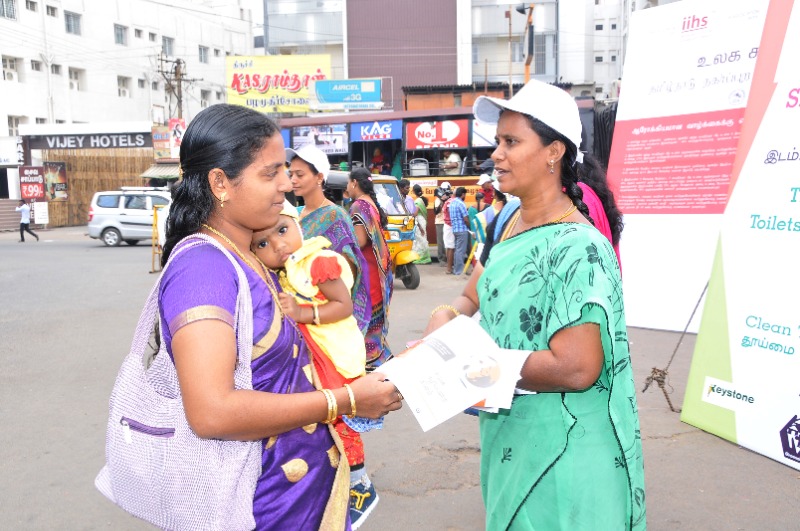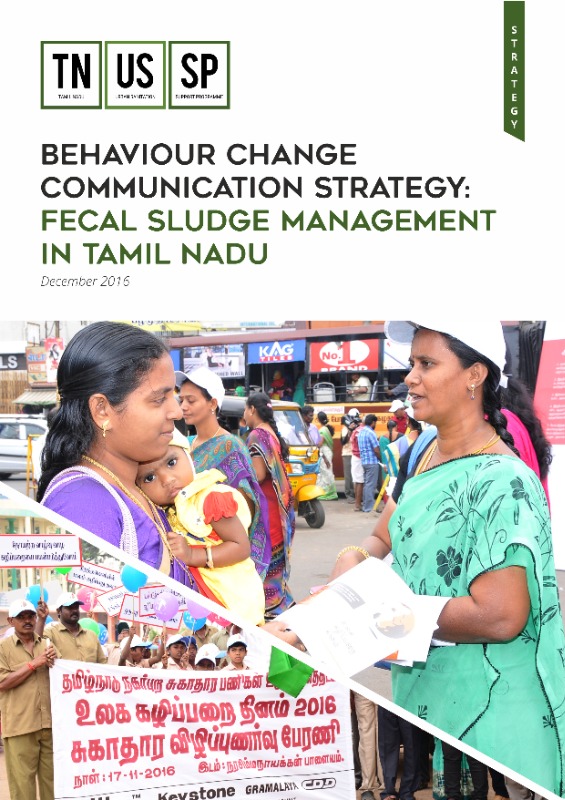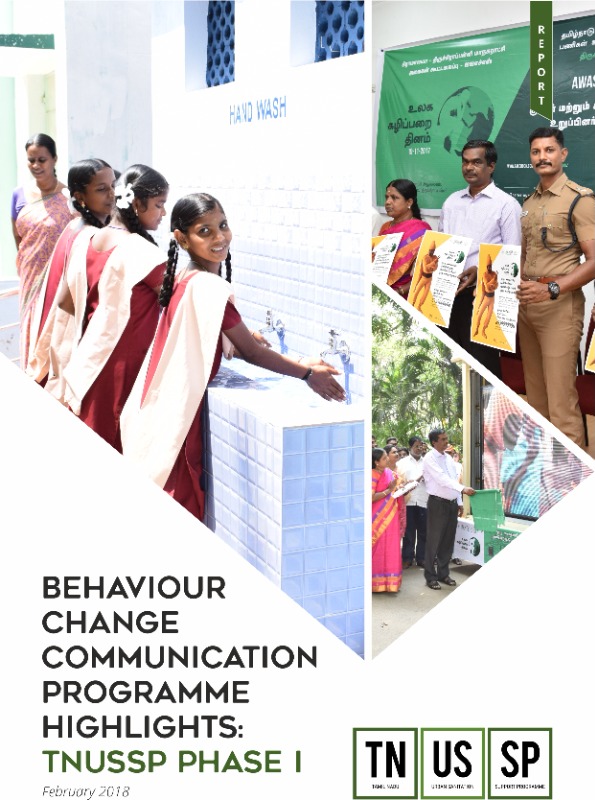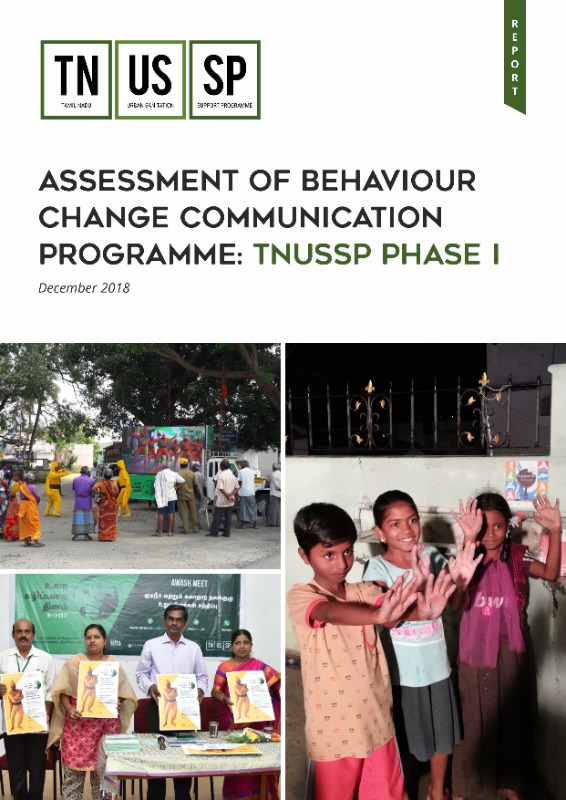- Forum
- categories
- Attitudes and behaviours
- Behaviour change and user psychology issues
- Creating an Enabling Environment for Fecal Sludge Management: Behavioural Change Communication, TNUSSP, Tamil Nadu, India
Creating an Enabling Environment for Fecal Sludge Management: Behavioural Change Communication, TNUSSP, Tamil Nadu, India
6253 views
Creating an Enabling Environment for Fecal Sludge Management: Behavioural Change Communication, TNUSSP, Tamil Nadu, India
The Tamil Nadu Urban Sanitation Support Programme (TNUSSP) launched in 2015 aims to achieve improvements along the entire urban sanitation chain in the state of Tamil Nadu, India, by demonstrating innovations in two model urban locations – Tiruchirappalli city and Periyanaicken-palayam and Narasimhanaicken-palayam town panchayats in Coimbatore district. In addition to the interventions and programmes in the demonstration sites, TNUSSP implemented state-level initiatives to support the rapid scaling-up of innovations in Fecal Sludge Management in all urban areas of Tamil Nadu.
Sanitation is a taboo topic in India and any behaviour change on sanitation must be preceded by the willingness of the society to speak about sanitation without embarrassment or fear. TNUSSP BCC strategy aims to emphasise the full cycle of sanitation, besides addressing the taboos and stigma surrounding it. Programmes on behavioural change communication were undertaken in the programme sites through strategy development, programme implementation and subsequent assessment, the documents related to which are presented below.
Behaviour Change Communication Strategy: Fecal Sludge Management in Tamil Nadu
Behaviour Change Communication Programme Highlights: TNUSSP Phase 1
Assessment of Behaviour Change Communication Programme: TNUSSP Phase 1
Sanitation is a taboo topic in India and any behaviour change on sanitation must be preceded by the willingness of the society to speak about sanitation without embarrassment or fear. TNUSSP BCC strategy aims to emphasise the full cycle of sanitation, besides addressing the taboos and stigma surrounding it. Programmes on behavioural change communication were undertaken in the programme sites through strategy development, programme implementation and subsequent assessment, the documents related to which are presented below.
| | |
Behaviour Change Communication Strategy: Fecal Sludge Management in Tamil Nadu
| | A range of behavioural deficits exist along the full cycle of sanitation in Tamil Nadu. TNUSSP’s Behaviour Change Communication (BCC) strategy has been conceptualised to highlight the cost associated with current unsanitary practices, as well as to promote a positive, aspirational position to facilitate adoption of the new behaviour. This document spells out all the components of the BCC strategy. Link to report |
Behaviour Change Communication Programme Highlights: TNUSSP Phase 1
| | BCC is a key component of the TNUSSP and seeks to address behaviour change through a range of approaches - communication campaigns and activities, targeted at appropriate segments, as an important tool. This document outlines the communication campaigns and related activities conducted in Tiruchirappalli, PNP and NNP. Link to report |
Assessment of Behaviour Change Communication Programme: TNUSSP Phase 1
| | As part of the BCC component during Phase 1 of TNUSSP, a range of activities were undertaken in Tiruchirappalli and PNP - NNP. This included outreach with general public, schoolchildren, sanitary workers and government officers of the urban local body. An assessment was carried out to understand the effectiveness of these activities, and the findings are presented in this report. Link to report |
Attachments:
The following user(s) like this post: AjitSeshadri
Please Log in to join the conversation.
You need to login to reply
Share this thread:
- Forum
- categories
- Attitudes and behaviours
- Behaviour change and user psychology issues
- Creating an Enabling Environment for Fecal Sludge Management: Behavioural Change Communication, TNUSSP, Tamil Nadu, India
Recently active users. Who else has been active?
Time to create page: 0.238 seconds












